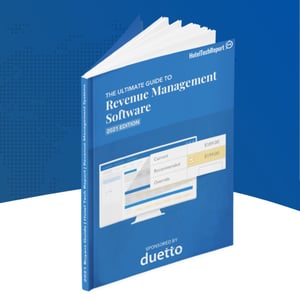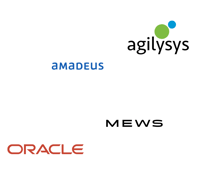The key part of a Revenue Manager’s role is to keep pricing relevant and competitive, to ultimately boost the hotel’s revenue. It’s a challenging job, especially now when demand is volatile and market segments are constantly in a state of flux with COVID-19 travel restrictions.
Revenue management software is an essential tool in this constant struggle to keep pricing relevant, profitable and efficient. The benefits are far-reaching, from driving more revenue and creating operational efficiencies, to providing accurate demand forecasting.
With so many different factors affecting the pricing process, a Revenue Management System (RMS) helps to simplify things by bringing all the relevant data together in one place, and delivering it in a straightforward way that assists Revenue Managers to make more educated decisions, driven by the data.
And RMS will help your revenue teams work smarter, be more agile and more efficient. But what should you look for when it comes to actually choosing a provider? What are the key characteristics it should offer and how do you know which one is right for your business?
Luckily, help is at hand. Together with Hotel Tech Report, we’ve put together a brief guide to talk you through what features to look out for when selecting an RMS to boost sales and enhance operational efficiency.

|
| To find out more about revenue management systems and what they can bring to your business, please download this useful and informative Buyers Guide from Hotel Tech Report here. |
5 Features Your RMS Should Offer
Cloud technology - Using cloud technology to run your RMS enables your systems to share data in a smooth and seamless way. It also allows developers to push software updates in real time, meaning you don’t have to waste money on new versions of software in order to get the latest features. What’s not to like about that? Plus, it offers added peace of mind because it doesn’t rely on a system that could easily fall victim to an on-property power outage.
Intelligent reporting - A good RMS not only presents your data in tabular reports, but allows you to visualize your data and reports in graphical form. This allows revenue teams to better understand trends, outliers and patterns in data. It’s important that your RMS be able to build, export and share your most critical reports. Revenue teams must be able to share reports at the push of a button with management, ownership and other departments within the hotel.
Automated recommendations - Without the need for analysis or time-costly manual updates, an RMS with this feature will allow your price recommendations to be instantly reflected in your PMS at the touch of a button. Look for an operator offering controlled automation - which enables you to decide which elements of your strategy to automate, and which may need more of a manual, hands-on approach.
Open pricing - It’s important that your RMS can price room types and channels independently of one another, and not in lockstep with a set BAR rate. Open pricing allows this.
Pacing reports - An RMS system that provides pacing reports is hugely beneficial. They allow you to always be aware of your pace, and even enable you to compare your pacing with the chosen reference arrival date.
Hotels that make the leap to a RMS tend to experience a RevPAR increase of between 5 and 20% as a result of optimized automatic price setting per room type, and can save between 20 and 40 hours each month just by streamlining manual workflows. With benefits like these, it’s not hard to see why switching to an RMS is the sensible option for Revenue Managers around the world. And now you know what features to look for, choosing which one should be that little bit easier.
To find out more about revenue management systems and what they can bring to your business, please download this useful and informative Buyers Guide from Hotel Tech Report - http://go.duettocloud.com/hotel-tech-report-rms-buyers-guide.

